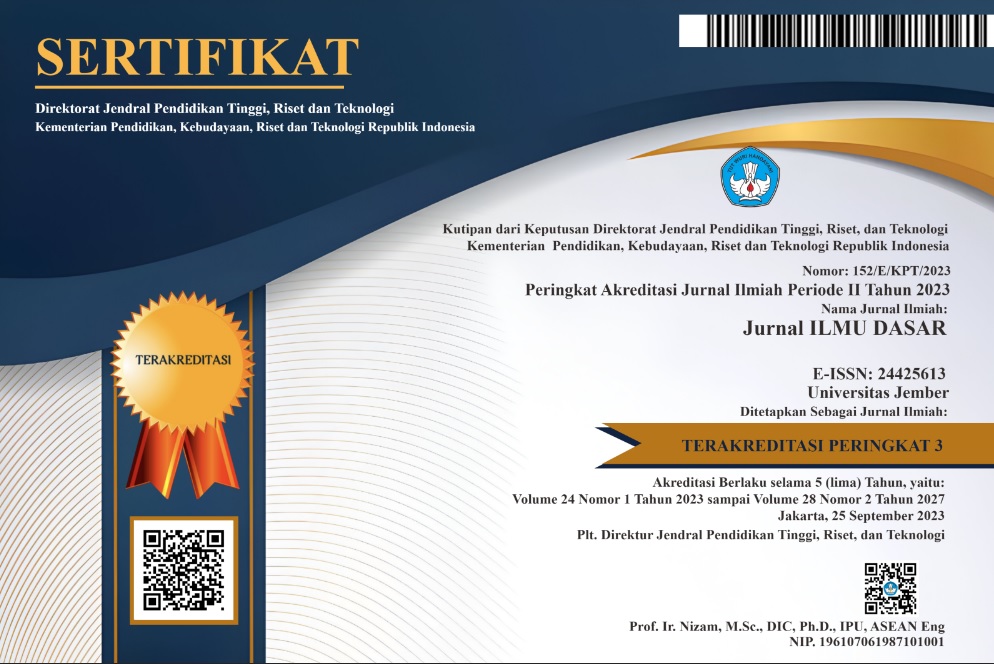Study of Phosphate Compounds in Sediment and Water Using Diffusive Gradient in Thin Films (DGT) Technique
Keywords:
Eutrophication, phosphate compounds, DGT, sediment-water interactionAbstract
The algae blooming, which is well known as eutrophication, becomes major problem for most water systemsaround the world. Even though orthophosphate caused eutrophication has been removed, eutrophication couldstill occur seasonally due to the act of sediment as a source and sink of phosphate compounds. Foreutrophication monitoring, the needs of information of concentration and type of phosphates species areimportant. To minimize contamination and to gain better understanding of sediment-water interaction, the in situtechnique of DGT has been used for determining the concentration and species of phosphates in sediment andoverlying water. The results showed that the concentrations of FRP and FOP in sediment approximately were 3mg/L and 0.5 mg/L, respectively. Under anoxic condition, phosphates could be released from sediment anddiffused into overlying water which was shown by relatively high concentration of phosphates in overlyingwater. Mineralization of FOP has occurred under anoxic condition which was agreed with an increase of FRP atdepth of sediment. The residue of refractory organic phosphates species were detected at depth sediments alongwith the end group of polyphosphate at deeper sediment. By understanding the role of sediment, its interactionwith overlying water and determining the phosphates concentration and species, eutrophication could becontrolled.








